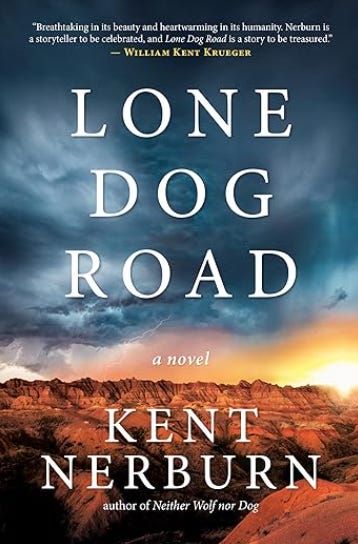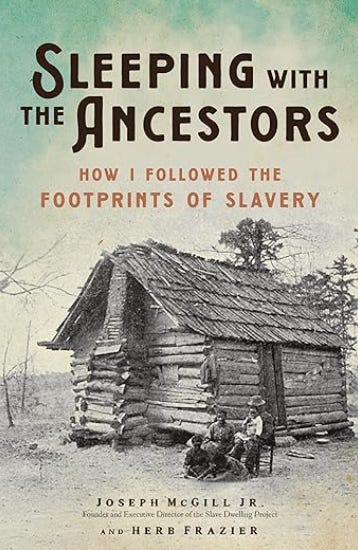Books & Culture - Storytelling
Two books about learning to listen, and learning to find what we all share in common.
By Martin Davis
EDITOR-IN-CHIEF
Email Martin


When Gov. Glenn Youngkin issued Executive Order 1 on January 15, 2022, he did so to end the teaching of so-called “inherently divisive concepts.”
In practice, Gov. Youngkin — and now President Donald Trump, who has taken this idea to the extreme — are working to make it illegal to tell the American story in its totality.
Put another way, what both Youngkin and Trump are doing is giving permission to “Americans” — in the very narrow way they define them — to ignore the stories of those not like them.
It is a narcissistic, and ultimately destructive, approach that denies us the opportunity to learn what we share in common. What Youngkin and Trump are promoting is not unique. Ironically, it has its parallels in the very liberalism they profess to hate — identity politics and the movement during the 1960s to tell only one’s own truth without respect for another’s.
The antidote is as simple, and as complex, as learning to hear others in their own words.
Kent Nerburn’s newest novel, Lone Dog Road, offers a much-needed lesson in this dying art.
The story follows two Lakota brothers who are fleeing a government agent that wants to place the youngest of the two in an Indian school. What sets the novel apart from Nerburn’s classic trilogy (Neither Wolf Nor Dog, The Wolf at Twilight, and The Girl Who Sang to the Buffalo) is that the story is told without Nerburn playing the role of narrator.
Nerburn has spent his life learning from the Lakota and Ojibway Indians. He has learned by listening — and through this listening learned to how tell another’s story in their voice.
It’s a type of listening that most people have lost the ability to do.
“Ultimately,” he told the Advance in an interview last week, “I’ve survived and learned by being a listener … and asking questions that are [asked] not to confront, but to elicit.”
Only in so doing, he said, do we get a feel for what a person is talking about.
This type of listening is born of the requirement that we learn to empathize. And the need “to empathize comes from the capacity to listen without trying to formulate your next thought or formulate a response,” he said, because then “you’re spending time in your mind, trying to figure out what you’re going to say.
Only then, Nerburn argues, will we begin to discover what we have in common.
By learning to listen, he said, we “can think outside the limit of ourselves.”
[Editor’s Note — Next week, the Advance will publish the full interview with Nerburn in our Sunday Book section.]
Another book that involves learning to listen is Joseph McGill Jr’s and Herb Frazier’s Sleeping with the Ancestors.”
McGill is the founder of the Slave Dwelling Project, and over a decade has slept in over 200 extant slave quarters. Part of the mission was to draw attention to and save these structures. But the exercise had another purpose.
“It is my desire to give humanity to these enslaved people as I present the places where they lived,” he wrote. “In these places they experienced the full range of human emotion, while they adapted to slavery and their forced estrangement from Africa.”
While there are slave narratives we can read, there are no American slaves left with whom we can listen as they speak. But we can listen to the places where they lived.
“While slave cabins for African Americans may be painful symbols of exploitation,” he continued, “they can also engender pride that our ancestors survived.”
In this collection of essays, readers are transported with McGill as he has his awareness of slaves’ lives broadened, even if he remains unable “to replicate the pain and suffering they endure.”
***
Trump’s recent executive order stating that no exhibit shall “contain descriptions, depictions, or other content that inappropriately disparage Americans past or living” is suppressing American voices, and denying us all the stories of surviving, overcoming, indeed thriving in a country that has too often been hostile to them.
Worse, it allows those who are within his narrow definition of “American” to ignore the stories of those not like themselves.
The irony is that it is these stories — the stories of Indians, slaves, and countless others who have faced the wrath of the American government — that embody what America is all about.
The fight for freedom in a world that has for the vast majority of its history fought to deny it.
Readers of Nerburn and Mcgill quickly come to realize, it is these non-European stories that are the most important for Americans to discover.
For without them, we will not find what binds us together.
Rest of text
Local Obituaries
To view local obituaries or to send a note to family and loved ones, please visit the link that follows.
Support Award-winning, Locally Focused Journalism
The FXBG Advance cuts through the talking points to deliver both incisive and informative news about the issues, people, and organizations that daily affect your life. And we do it in a multi-partisan format that has no equal in this region. Over the past year, our reporting was:
First to break the story of Stafford Board of Supervisors dismissing a citizen library board member for “misconduct,” without informing the citizen or explaining what the person allegedly did wrong.
First to explain falling water levels in the Rappahannock Canal.
First to detail controversial traffic numbers submitted by Stafford staff on the Buc-ee’s project
Our media group also offers the most-extensive election coverage in the region and regular columnists like:
And our newsroom is led by the most-experienced and most-awarded journalists in the region — Adele Uphaus (Managing Editor and multiple VPA award-winner) and Martin Davis (Editor-in-Chief, 2022 Opinion Writer of the Year in Virginia and more than 25 years reporting from around the country and the world).
For just $8 a month, you can help support top-flight journalism that puts people over policies.
Your contributions 100% support our journalists.
Help us as we continue to grow!
This article is published under Creative Commons license CC BY-NC-ND. It can be distributed for noncommercial purposes and must include the following: “Published with permission by FXBG Advance.”












